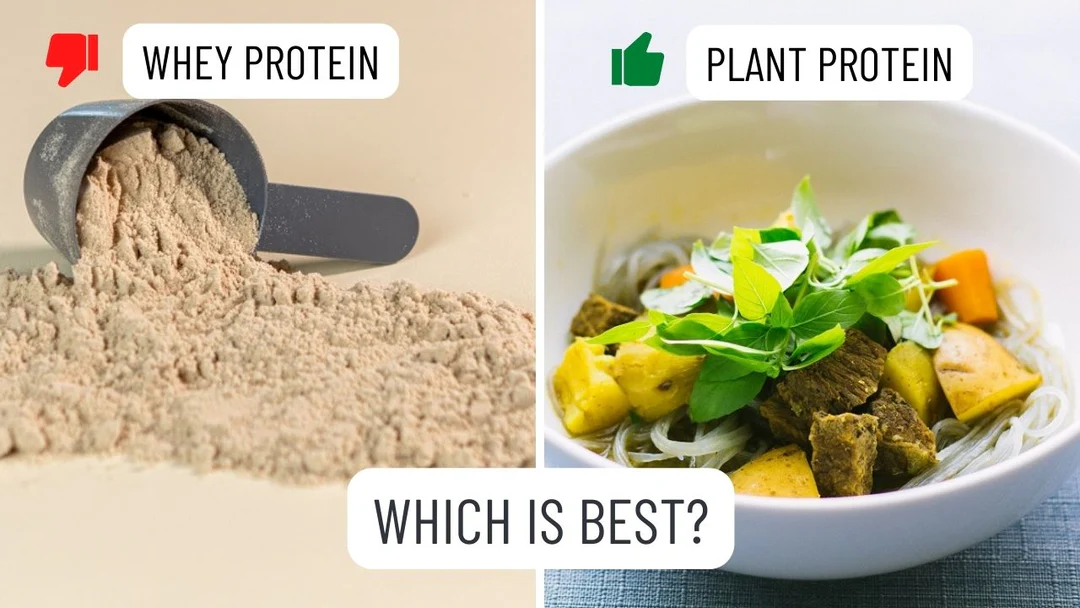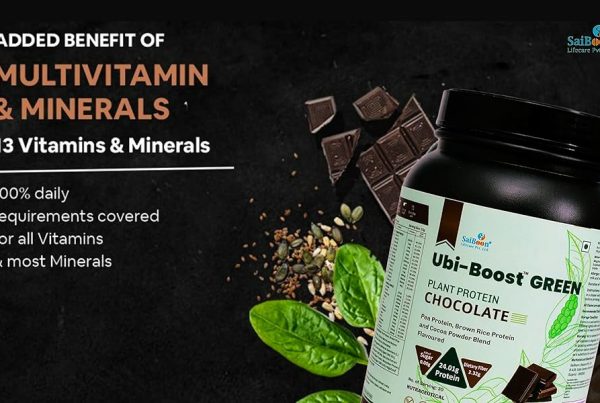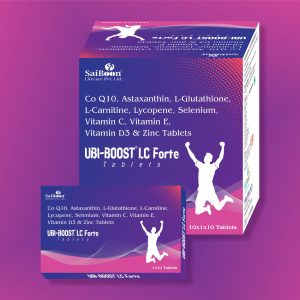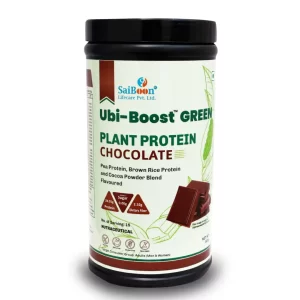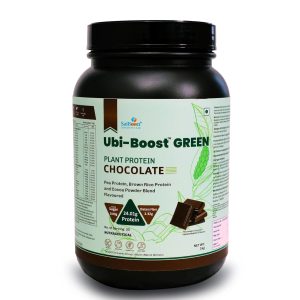Green Protein Powder vs. Whey Protein Powder: A Comparison
When choosing between green protein powder (like UBI-BOOST GREEN Plant Protein Powder) and whey protein powder, it’s essential to consider your dietary preferences, health goals, and personal needs. Both have distinct benefits, and here’s how they compare:
1. Source of Protein
- Green Protein Powder:
Derived from plant-based sources like peas, brown rice, hemp, or greens such as spirulina and spinach. It is ideal for vegans, vegetarians, or those avoiding animal products. - Whey Protein Powder:
Derived from milk, it is a by-product of cheese production. Suitable for those who consume dairy and want a fast-absorbing protein source.
2. Digestibility and Allergies
- Green Protein Powder:
Easier to digest and free from lactose, making it a great option for those with dairy intolerance or sensitive stomachs. - Whey Protein Powder:
Contains lactose, which can cause bloating or digestive discomfort for lactose-intolerant individuals.
3. Nutrient Content
- Green Protein Powder:
Often enriched with greens, antioxidants, and vitamins, providing additional health benefits beyond protein, such as improved digestion and detoxification. - Whey Protein Powder:
Focused primarily on protein content and may have limited additional nutrients unless fortified.
4. Protein Quality
- Green Protein Powder:
Contains essential amino acids but sometimes lacks one or more in sufficient quantities. However, blends (like UBI-BOOST GREEN) are formulated to provide a complete amino acid profile. - Whey Protein Powder:
Considered a complete protein with all essential amino acids, particularly high in leucine, which is critical for muscle repair and growth.
5. Absorption Rate
- Green Protein Powder:
Absorbs at a moderate rate, providing a sustained energy release, making it suitable for meal replacements or gradual recovery. - Whey Protein Powder:
Rapidly absorbed, ideal for immediate post-workout recovery.
6. Environmental Impact
- Green Protein Powder:
More sustainable and eco-friendly, with a lower carbon footprint compared to animal-based proteins. - Whey Protein Powder:
Has a higher environmental impact due to its dairy origin and resource-intensive production process.
7. Health Goals
- Green Protein Powder:
Ideal for overall health, weight management, and individuals seeking additional nutrients or dietary diversity. - Whey Protein Powder:
Best for athletes or bodybuilders focused on quick muscle recovery and performance gains.
8. Flavor and Texture
- Green Protein Powder:
Often has an earthy taste, but flavored options like UBI-BOOST GREEN Chocolate Flavor make it more enjoyable. - Whey Protein Powder:
Generally has a smoother texture and a neutral to slightly sweet taste, depending on the flavoring.
Conclusion
Choose Green Protein Powder if you:
- Follow a plant-based or vegan diet.
- Have lactose intolerance or digestive issues.
- Want added nutrients and sustainability benefits.
Choose Whey Protein Powder if you:
- Need rapid protein absorption post-workout.
- Prioritize muscle building and recovery.
- Are not sensitive to dairy.
Ultimately, the choice depends on your dietary preferences, health needs, and fitness goals. For a balanced and nutrient-rich option, UBI-BOOST GREEN Plant Protein Powder offers an excellent plant-based alternative with added health benefits.

